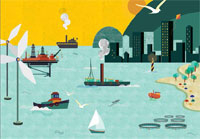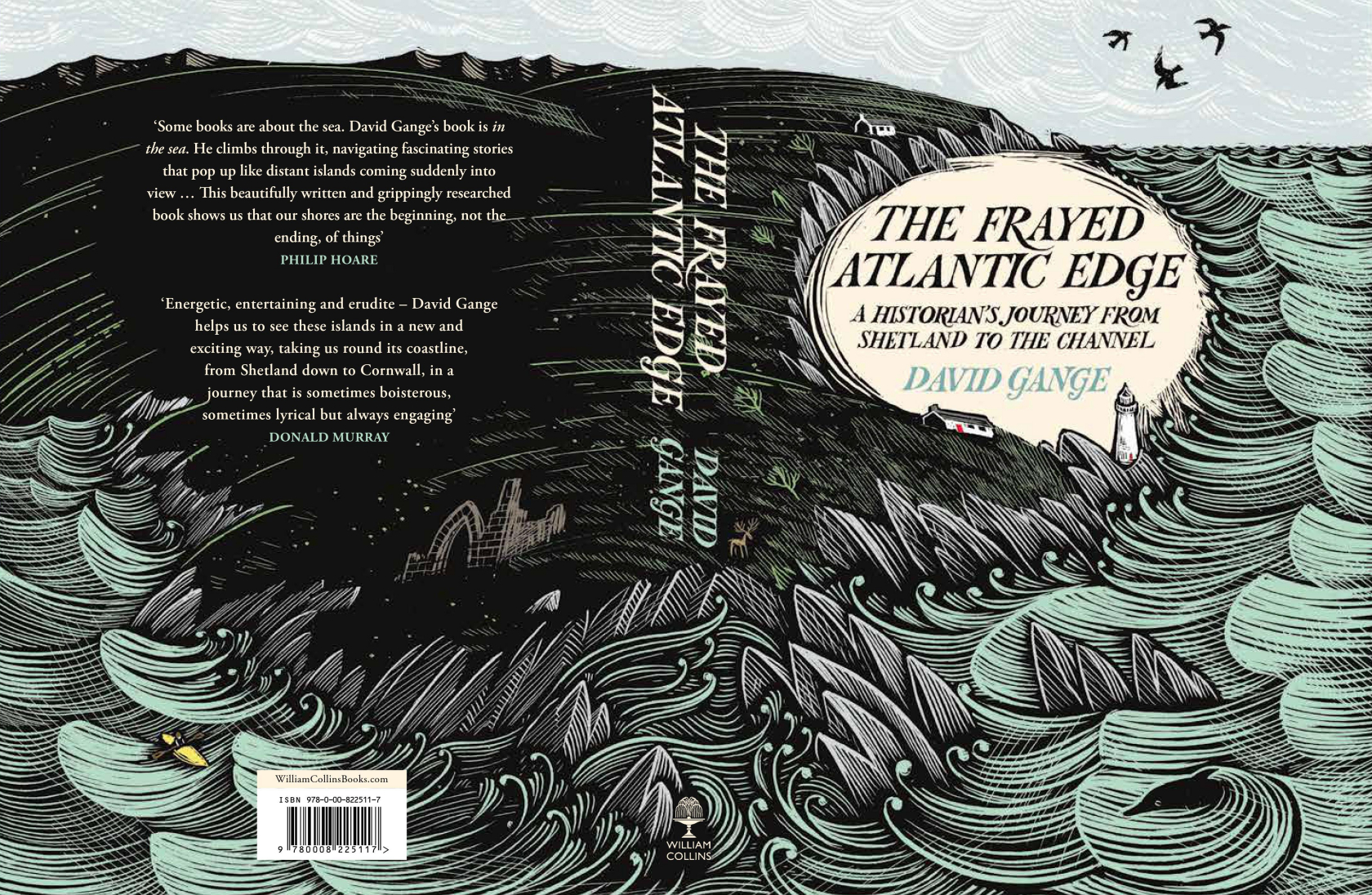Here, I have compiled a list of books and articles pertaining to nature-culture relations, landscape, nature conservation and coastal protection at the Wadden Sea coast. It is quite an eclectic mix, spanning history, geography, heritage studies, cultural anthropology with papers in German, English, Dutch and Danish. They all informed my own research in some way (the Danish and Dutch papers in translation).
Continue readingCFP: Planning for Sea Spaces: Processes, Practices and Future Perspectives
Special Issue of Planning Practice and Research
Guest Editors: Franziska Sielker1, Glen Smith2 & Cormac Walsh3
1Cambridge University, UK, 2University College Cork, Ireland, 3Hamburg University, Germany
**Submission deadlines: Abstracts must be submitted by April 30th 2020. Full papers are required by October 30th 2020**

image source: European Commission
The Frayed Atlantic Edge by David Gange: Rewriting Histories and Geographies of the Coast
by Cormac Walsh
In ‘The Frayed Atlantic Edge’ (William Collins, July 2019) historian and experienced sea-kayaker David Gange recounts his journey along the Atlantic coasts of Britain and Ireland, from Shetland to the Channel. In travelling by kayak, Gange immersed himself in the rhythms of the sea and coast and sought to gain new perspectives on the history and geographies of Britain and Ireland, from the perspective of the sea. Drawing on archival and literary sources, he weaves together an account of these Atlantic coasts which challenges head-on dominant narratives of the peripherality and marginality of coastal and island places. He begins with the conviction that British and Irish histories ‘are usually written inside out’, based on the false premise that the ‘land-bound geographies’ of today have existed forever (p. ix).

Image source: https://frayedatlanticedge.wordpress.com.
CFP and Registration: Spatial Strategies at the Land-Sea Interface: Rethinking Maritime Spatial Planning, Sept 2019

CALL FOR PAPERS
Spatial Strategies at the Land-Sea Interface: Rethinking Maritime Spatial Planning
11-13th September 2019, University of Hamburg, Institute for Geography
SUBMISSION DEADLINE: 15th July 2019
Under the EU Maritime Spatial Planning (MSP) Directive adopted in 2014, Member States are tasked with the preparation of maritime spatial plans by 2021. These plans are required to ‘take into account land-sea interactions’ and ‘should aim to integrate the maritime dimension of some coastal uses or activities and their impacts’ (EU 2014, 138). Accordingly, inshore territorial waters must be included within either marine spatial plans or land-based spatial plans where they extend beyond the coastline (EU 2014, 140, Article 2:1). Contemporary and future challenges of climate change adaptation, coastal erosion and sea-level rise underline the need for visionary and inclusive spatial strategies at the coast (O’ Riordan et al 2014, Walsh 2019).
Workshop Announcement: Spatial Strategies at the Land-Sea Interface: Rethinking Maritime Spatial Planning
University of Hamburg: 11-13th September 2019
Under the EU Maritime Spatial Planning (MSP) Directive, Member States are tasked with the preparation of maritime spatial plans by 2021. These plans are required to take account of land-sea interactions. Experience to date, however, indicates that MSP occupies a different institutional and policy space to land-based terrestrial spatial planning. At the same time as MSP is becoming established as a formal policy instrument applied in a coordinated manner across Europe, European spatial planning has reached an impasse, with a discernible shift away from ambitious spatial strategies over the last two decades. Furthermore, as policies and practices of integrated coastal zone management are displaced through a focus of attention on MSP, there is a risk of a ‘new coastal squeeze’ where the land and marine become institutionalised as distinct policy spaces. This interdisciplinary workshop aims to explore and critically reflect on the capacity for MSP and spatial planning more broadly to address the challenges posed by the sustainable governance of the land-sea interface. In particular, we will focus on the spatial dimensions of MSP and spatial planning at the coast. Key topics for discussion and reflection include the capacity of MSP to work with relational connections across space and the potential to engage with place-based knowledges and multiple ways of knowing the sea.
